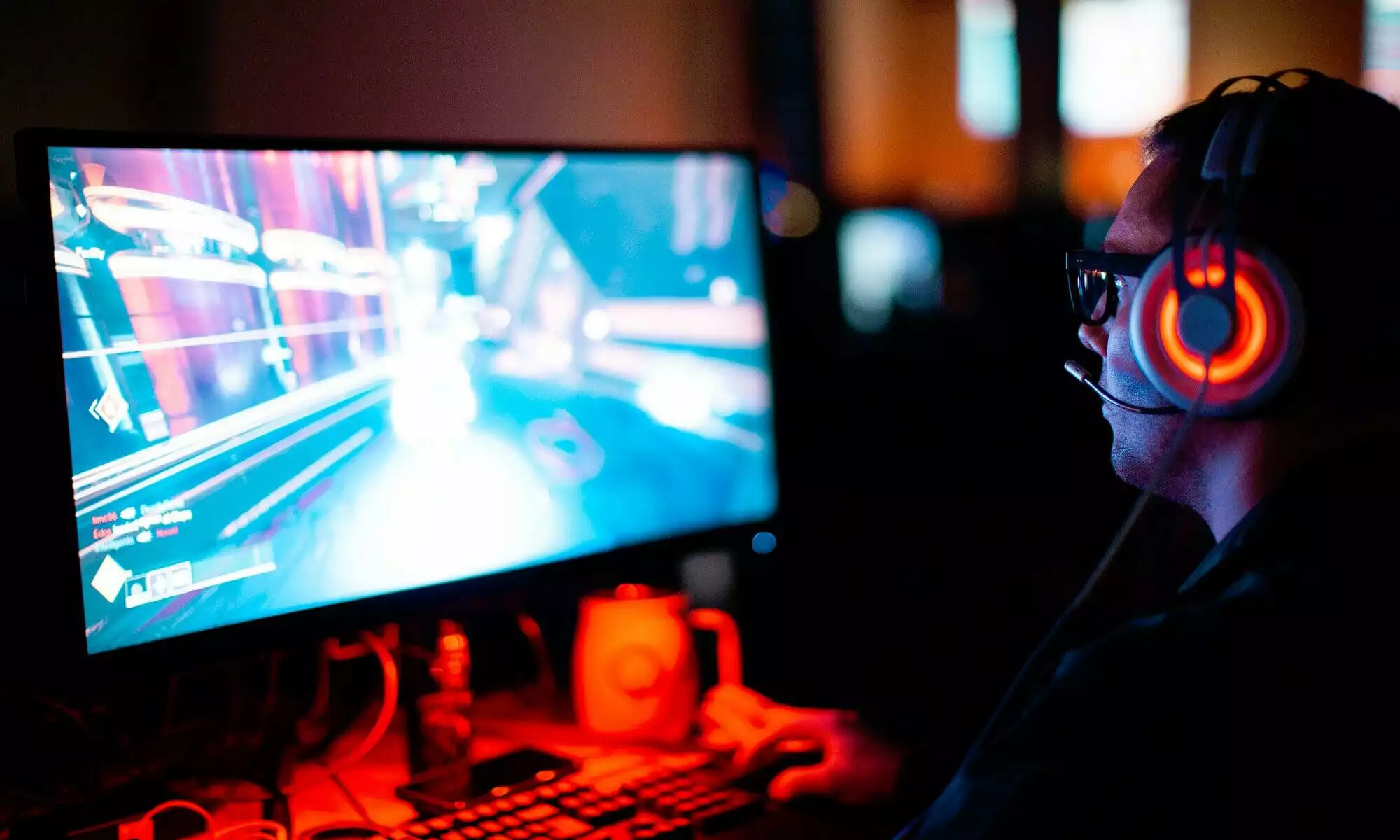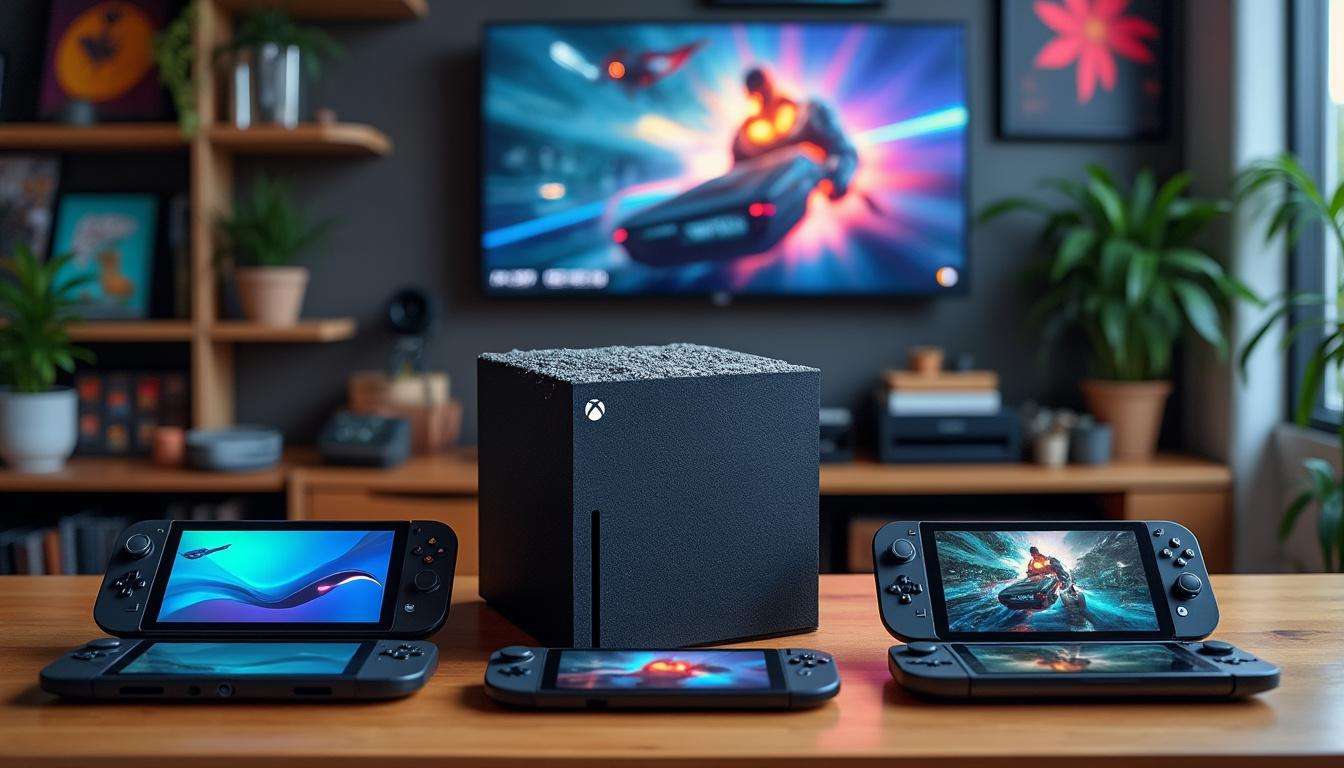Dust has a way of revealing what we actually reach for when the night gets long. In my living room, the Xbox Series X sits under a thick layer of dust on its controller, while I chase adventures on handheld PCs that sit lighter in my hands and heavier in my curiosity. This year, Baldur’s Gate 3 on the ASUS ROG Ally X has felt more immediate than the same title on a living-room screen, and Kingdom Come: Deliverance II on our desktop has reminded me that immersion isn’t tied to a fixed setup. The shift isn’t about neglecting Microsoft’s flagship; it’s about the freedom to game anywhere, anytime, with a Windows-based handheld that travels with me. As 2025 unfolds, the partnership between Microsoft and ASUS signals a broader move away from a single-console mindset toward a future where Xbox, PlayStation, Nintendo, and a spectrum of handheld PCs share the stage. This article examines how handheld gaming PCs are reshaping the definition of “home” for our games.
Dusty Xbox Series X And The Handheld Takeover: What 2025 Changes In My Setup
The moment the dust thickened on the Series X, I began to notice a quiet revolution happening in my gaming habits. Handheld gaming PCs make the experiences I used to reserve for a couch or a desk portable—and that portability changes everything.
- Mobility over confinement: games travel with you, not the other way around.
- Windows 11 on the go: native access to Game Pass, Steam, Battle.net, and more in a compact form.
- Library breadth: cross‑platform releases from Xbox to PC titles make the switch more seamless.
- Costs and value: early handhelds can be pricey, but discounts have become common, closing the gap with traditional consoles over time.
This is not a rejection of the Series X; it’s a recognition that the living room isn’t the only living space for gaming. The push toward handhelds is reinforced by industry signals such as Handheld Xbox Gaming Review and coverage of the evolving Xbox handheld ecosystem. For more context, see the discussion around why compact gaming PCs may outpace dedicated consoles in certain scenarios: Compact Gaming PC vs Console.
As a user who roams with a backpack rather than a couch, I’m embracing a future where the line between Xbox, PlayStation, Nintendo, Steam Deck, and Windows-based handhelds isn’t a barrier but a spectrum. The campaign around This is an Xbox signals a broader shift: you don’t need a fixed box to access a vast library; you need a capable handheld that runs Windows and a resilient service like Game Pass. The question is less about hardware than about whether the software and ecosystem can keep up with this mobility trend.
Front-Runners In The Handheld Arena: ROG Ally, Steam Deck, AYANEO And Friends In 2025
The handheld PC market isn’t a single product—it’s a tribe. While the ASUS ROG Ally X remains a standout for Windows 11 performance in a portable shell, competition from Steam Deck, AYANEO, GPD Win, OneXPlayer, Lenovo Legion Go, and others keeps the space dynamic. The practical reality in 2025 is that these devices are not just substitutes for consoles; they are complements to an increasingly PC-centric gaming ecosystem that includes Xbox Game Pass on the go and cloud options for even broader reach.
ROG Ally X: The Handheld That Reshaped My Routine
The Ally X demonstrates how far Windows-based handhelds have come, offering desktop-class libraries in a compact form. It’s not perfect, but it’s a compelling combination of performance, portability, and service parity with PC gaming. My daily flow now includes quick sessions at the kitchen table, on the couch, or in bed, powered by Game Pass and a growing catalog of titles across stores.
- Performance and battery life: balanced for modern titles at reasonable settings.
- Software parity: Windows 11 unlocks access to Steam, Battle.net, and more.
- Ecosystem fit: hands-on with Xbox Game Pass while away from the TV.
Steam Deck And Alternatives: The Budget Gateways And The Trade‑Offs
Steam Deck popularized handheld PC gaming, and its open-book approach set expectations for future devices. The trade-offs with Deck‑like devices versus Windows 11 handhelds hinge on library access, control schemes, and battery efficiency. In 2025, the Deck remains a solid entry point for handheld PC gaming, but Windows-based devices often offer broader software compatibility and direct access to Game Pass and other PC stores.
- Library breadth: Steam’s catalog remains unmatched for indie hits and patches.
- Software flexibility: Windows 11 devices allow PC ecosystems beyond Steam.
- Price-to-performance: Decks often undercut premium Windows handhelds, though promotional pricing shifts the balance.
AYANEO, GPD Win, OneXPlayer, And Lenovo Legion Go: The New Wave Of Windows Handhelds
Beyond the big names, AYANEO, GPD Win, OneXPlayer, and Lenovo Legion Go push the envelope on form factors, heat management, and display quality. These devices expand the portability spectrum—from ultra-compact designs to larger, more comfortable keyboards and control layouts. The result is a richer marketplace where you can pick an option that best fits your travel pattern and latency tolerance.
- Form factor variety: from pocketable to more substantial ergonomics.
- Thermals and efficiency: advances in cooling and power efficiency expand playable windows.
- Cross‑device workflows: easy handoff between handheld and desktop setups with Windows 11.
Another angle to watch is how these devices integrate with Xbox Game Pass, cloud gaming, and PC ecosystems. For broader market context, these explorations are complemented by industry coverage and hands-on impressions from the community.
Why The 2025 Xbox Handheld Push Matters For Xbox, PlayStation, And Nintendo
Microsoft’s collaboration with ASUS and the normalization of Windows 11 gaming handhelds reflects a broader realignment. The idea is not to replace consoles but to supplement the ecosystem with devices that bridge PC, cloud, and living-room play. This shift matters for every major platform—Xbox, PlayStation, and Nintendo—because it nudges developers toward cross‑buy, cross‑play, and shared services that transcend hardware. The result may be less fragmentation and more universal access to titles, including big-name Xbox games arriving on handheld formats and PC releases landing on traditional consoles.
- Cross‑platform releases: more titles available across devices and stores.
- Service integration: Game Pass on handhelds expands the value proposition.
- Market dynamics: price pressure and feature competition push platforms to innovate.
For readers seeking deeper dives, see the ongoing discussions in handheld Xbox coverage and the broader console-to-PC transition, including analyses of how the market is evolving in 2025 and beyond: Xbox Handheld Console Hold and Xbox Next-Gen Handheld 2025-2027.
The landscape remains dynamic, with active debates about price, performance, and the best way to experience a vast library on the go. If you’re curious about specific devices, you’ll want to stay tuned to ongoing coverage and hands-on previews, including the evolving Xbox handheld narrative and related Windows 11 gaming devices. Game Pass acts as a key catalyst, tying handheld potential to a broader, accessible catalog.
To ground this in real-world questions, consider how the current market compares handhelds to traditional consoles. A recent flattening of the price gap, wave of software optimizations, and the rise of cross‑platform services all point toward a cohesive future where your Xbox games are as accessible on a pocket device as on a TV. For readers who want concrete examples of how the landscape is evolving, these sources offer practical insights into the interplay between devices and services: Xbox Handheld Project Kennan and Xbox Game Pass Future Gaming.
In sum, the dust on my Series X has become a reminder rather than a nuisance: the handheld revolution is real, and it’s reshaping how we approach games, platforms, and the value of a single library across multiple devices. The era of “one device to rule them all” is giving way to a more nuanced, flexible setup where Xbox, Steam Deck, PlayStation, Nintendo, and windowed PC ecosystems share the spotlight.
FAQ
Will handheld gaming PCs completely replace consoles like Xbox and PlayStation in 2025?
No. They are extending and diversifying how we access games. Handhelds complement consoles by offering portability and PC ecosystems, while traditional consoles remain optimized for living-room experiences and exclusive titles.
Is the price of the upcoming Xbox Ally realistic relative to current handhelds?
Rumors place the Xbox Ally in a premium range, with estimates around $800–$1,000. History shows successful handhelds often drop in price over time, especially with sales on platforms like the ROG Ally. Budget options exist, but the value comes from performance, portability, and Windows 11 compatibility.
Can I still play Xbox games on handhelds if I don’t subscribe to Game Pass?
Yes, but Game Pass significantly expands the library accessible on handheld devices. You can also buy games individually from Xbox or PC storefronts and play them on compatible handhelds.
Where can I find more in‑depth analysis on handheld Xbox developments?
Several ongoing analyses cover the space, including hands-on reviews and market outlooks. For continued updates, see the linked articles on Only Gaming and related coverage of Xbox handhelds and PC gaming trends.

